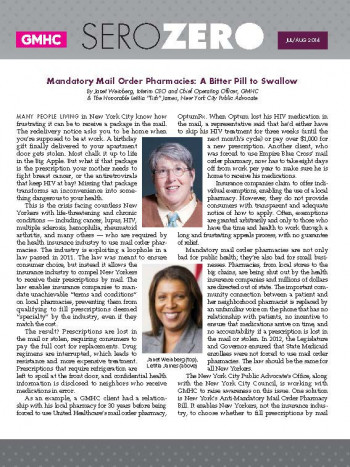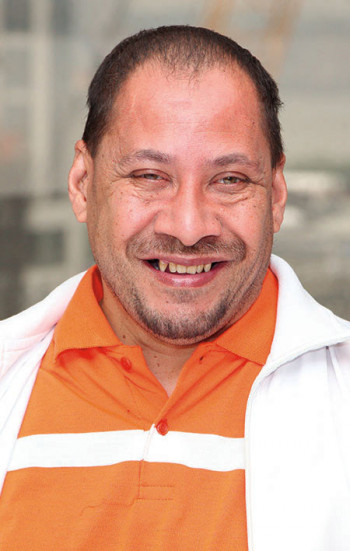
In 1990 I was arrested for marijuana possession. I believe I was HIV positive at the time because I was getting sick, but I was not officially diagnosed until 2001. The judge sent me to Rikers Island — New York City’s primary correctional facility — for 90 days. This was scary because I lost my apartment, I lost my job and I missed a lot of my college classes.
On my third day at Rikers, I got sick. I had diabetes and my blood sugar was up. I also had high blood pressure. I asked the correctional officer to take me to the hospital. They refused. They left me in the cell, where I had seizures.
At that time, I was afraid that I was going to die in the cell. I told the correctional officers that I wanted to see the doctor because I needed medication for diabetes and high blood pressure. They refused to take me. Eventually, they put a spoon in my mouth so that I wouldn’t bite off my tongue. Finally, they took me to the hospital because they were scared that it would get worse. They called the ambulance.
In the hospital they had me handcuffed to the bed. I was uncomfortable because I had a catheter and I had to move my bowels in a pan. I was in the hospital for almost a week. The doctors said that I had to take care of my health. They said that my stress and diabetes could cause my liver to fail.
When I got back to prison, the other inmates started looking at me weird and calling me names like “faggot,” but I didn’t pay them any mind. I didn’t get along with the other inmates most of the time because I was afraid that they might hurt me. I thought they were going to beat me up because I was HIV positive.

Alan Perez
There was one inmate who wanted to have sex with me. I told him no because I thought I was HIV positive and I didn’t want to infect him. I told him that I could be his friend and give him advice on how to not get infected and told him to get tested.
Otherwise, I was isolated in my room all of the time. I never came out of my cell, not even to watch TV or to eat. I lost a lot of weight in prison because I was sick and because I was afraid to be with the other inmates in the cafeteria. The guards noticed that I wasn’t eating and they didn’t do anything. It was lonely because I had no visitors. No family members called me. They didn’t write me letters.
Another problem was that it took a long time to get my medication for HIV and for my diabetes. Every time I went to see the doctor for my medication I had to wait in line. Once, my name was not on the list for the medication and I had to wait. When they finally did have my medication, they only had three of the four I needed. Other inmates didn’t have their medications available as well.
Before they released me, I had to go to court. The judge said that I had to go to rehab and detox for marijuana and cocaine possession. He gave me a program to go to so I could clean myself up. I’ve been clean now for 20 years.
When I came out of prison, my mother passed away and I couldn’t be at the funeral because I had to be at rehab. The judge told me that I had to stay out of trouble. He didn’t want me to hang out with people that I used to hang out and do drugs with.
When I came home from rehab, all my friends and family were happy to see me. They said they would support me in every way they could for me to stay clean and not go back to prison.
It was a hell of a ride being in prison. I learned my lesson and don’t want to go back. I have many things to do out here and I want to get my life back together.
Alan Perez is a founding member of GMHC’s Action Center.
To read the issue as a PDF, click here.







Comments
Comments